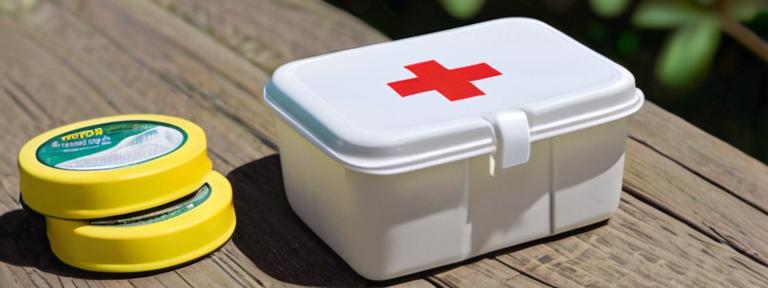Preparing Your Summer First Aid Kit: Essential Items for a Safe Outdoor Adventure
Importance of a Well-Stocked First Aid Kit
When embarking on summer adventures, it is crucial to be equipped with a comprehensive first aid kit. This essential toolkit can help you respond effectively to various injuries and health issues that may arise during your outdoor activities. In this article, we will guide you through the items you should pack in your summer first aid kit for a safe and enjoyable experience.
Basic First Aid Kit Contents
Adhesive Bandages
Adhesive bandages, also known as adhesive strips or plasters, are essential for covering small wounds and preventing infection. Pack various sizes to cater to different injuries.
Gauze Pads
Gauze pads serve as a dressing material for larger wounds, absorbing blood and other fluids to help prevent further contamination. Sterile gauze pads are ideal for use in first aid situations.
Medical Tape
Medical tape is used to secure bandages and dressings in place, ensuring they remain intact during physical activity. Hypoallergenic options are available for those with sensitive skin.
Pain Relief Medications
Non-Prescription Pain Relievers
Over-the-counter pain relievers, such as ibuprofen or acetaminophen, can help alleviate minor aches and pains resulting from summer activities. Always follow the recommended dosage guidelines.
Anti-Inflammatory Creams
Topical anti-inflammatory creams, such as arnica or diclofenac gel, can help reduce swelling and relieve pain caused by insect bites, sunburn, or other minor injuries.
Wound Care Supplies
Antiseptics and Disinfectants
Sterile antiseptic wipes or solution can help clean wounds before bandaging, reducing the risk of infection. Examples include iodine, hydrogen peroxide, or saline solution.
Tweezers
Tweezers are useful for removing foreign objects from wounds, such as splinters or thorns, to prevent infection and promote healing.
Insect Repellent and First Aid for Bites and Stings
Insect Repellent
Apply insect repellent containing DEET, picaridin, or oil of lemon eucalyptus to exposed skin and clothing to prevent mosquito and tick bites. Always follow the manufacturer’s instructions.
Antihistamines
In case of insect bites or stings, over-the-counter antihistamines can help reduce itching and swelling. Examples include diphenhydramine (Benadryl) or cetirizine (Zyrtec).
Cold Pack or Instant Cold Packs
Cold packs or instant cold packs can help relieve pain and reduce swelling caused by insect bites, stings, or other injuries. Apply the cold pack to the affected area for 15-20 minutes at a time.
Sun Protection
Broad-Spectrum Sunscreen
Choose a broad-spectrum sunscreen with an SPF of 30 or higher to protect against UVA and UVB rays. Apply generously to exposed skin and reapply every two hours, or immediately after swimming or sweating.
Lip Balm with Sun Protection
Protect your lips from the sun’s harmful rays by using a lip balm with an SPF of 15 or higher. Apply regularly throughout the day, especially before prolonged sun exposure.
Other Essential Items
First Aid Guide
Carry a first aid guide or download a first aid app for quick reference in case of emergencies. Knowing basic first aid skills can help you respond effectively to various situations.
Scissors and Tweezers
In addition to the tweezers mentioned earlier, also pack a pair of small scissors for cutting bandages or gauze pads. Ensure both tools are sterile before use.
Disposable Gloves
Gloves can help protect you from bloodborne pathogens when treating wounds. Dispose of gloves after use and wash hands thoroughly with soap and water.
Whistle or Personal Alarm
A whistle or personal alarm can help attract attention in case of an emergency, making it easier for others to locate you.
By packing a well-stocked summer first aid kit, you can ensure a safe and enjoyable outdoor adventure. Always remember to prioritize your health and safety, and seek professional medical help if necessary. Happy exploring!


